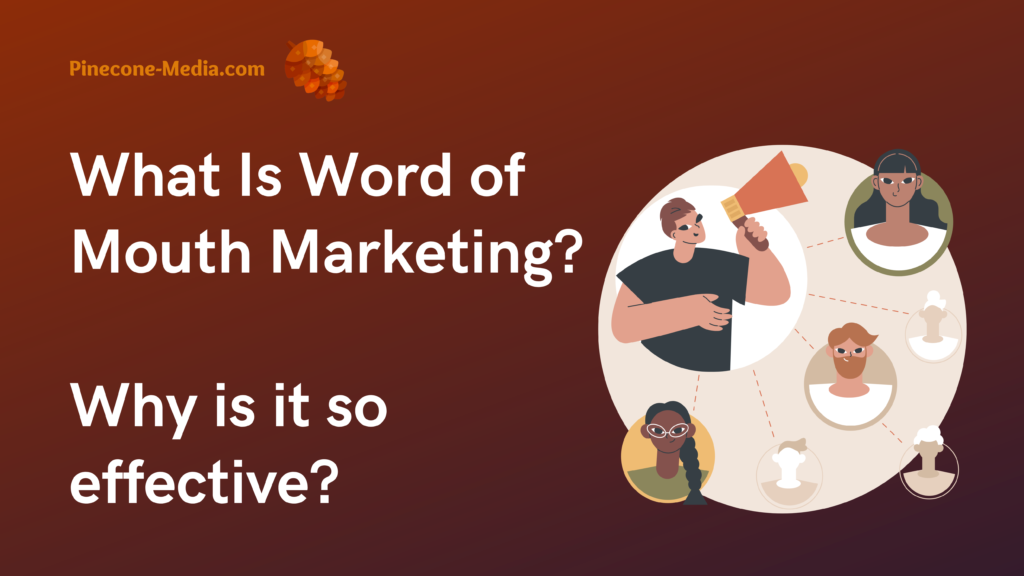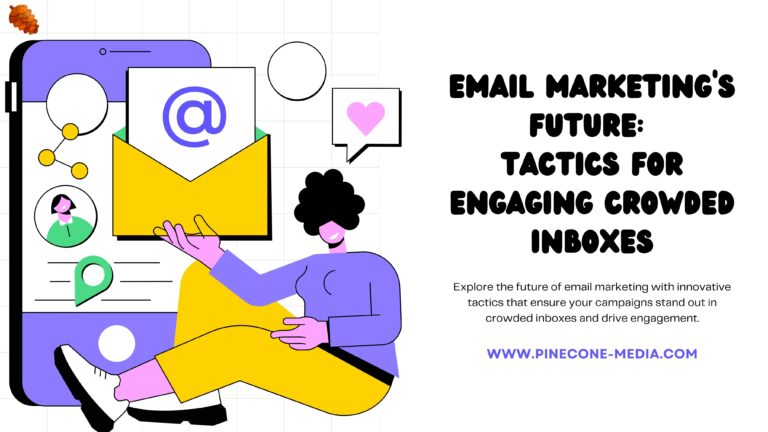Introduction
Word of mouth (WOM) marketing is one of the most effective ways to get people talking about your brand, product, or service. It’s inexpensive, effective at generating sales and leads, and it builds trust among potential customers. But what exactly is word-of-mouth marketing? How does it work for companies? And how can you incorporate WOM strategies into your company’s plan? We’ll cover all that here!
What Is Word of Mouth Marketing?
Word of mouth marketing is a form of advertising that relies on personal recommendations from friends and family. It’s the most trusted form of marketing, according to Nielsen research, and it has been shown to be the most effective way to reach consumers. Word of mouth works because people trust it more than any other type of advertising—and with good reason: It’s true!
Word of mouth is also often referred to as “earned media” because it comes from other people rather than paid ads or direct mailings. That means word-of-mouth marketing costs less than traditional forms of advertising (such as TV commercials) but still allows you to reach large numbers of potential customers at once—a powerful combination for small businesses like yours!
How Does Word of Mouth Marketing Work for Companies?
Some companies use WOMM strategies by engaging in influencer marketing, where they pay celebrities or popular bloggers to promote their brand in exchange for some kind of compensation, like money or free products. This strategy has become more popular as more people buy into the idea that “social proof” can influence their purchasing decisions—when one person recommends something highly rated by others, we are more likely to trust it ourselves.
How to Incorporate Word of Mouth Marketing Strategies into a Business Plan
In order to get the word out about your business and start a conversation, you’ll need to create an effective marketing plan. Start by making a list of all the things you want your company to accomplish. Then, prioritize these goals based on which are most important for your company’s success.
Once it’s clear what needs to be done in order for your business to grow and succeed, it will be easier for you (or anyone else) to create specific strategies that will help achieve those goals. For instance, if building brand awareness is one of the first things on this list of priorities, then consider how social media might be used as part of this effort. Or maybe incorporating word-of-mouth marketing into existing advertising campaigns would be best suited for accomplishing this goal instead?
Types of WOM Marketing Methods
There are several types of word of mouth marketing, including:
- In-person recommendations
- Testimonials
- Product reviews
These forms of word of mouth marketing work because they make it easy for consumers to share information they’ve received or observed firsthand with other people. As long as the person recommending something is believable, trustworthy and respected in your industry, he or she will have an impact on what others think about your product or service.
How to Create a Word-of-Mouth Marketing Campaign — Step by Step Overview
Word of mouth can be a powerful marketing tool, but if you don’t know where to start or how to execute your strategy, it’s easy to get lost in the weeds. Here are the basic steps you need to take when creating a word-of-mouth marketing campaign:
- Define Your Target Audience
- Create Relevant Content for Your Audience
- Use Social Media and Other Marketing Channels To Reach Your Audience
- Create A Call To Action That Will Make People Want To Talk About Your Content (This Is Where We Come In)
- Analyze Results And Make Adjustments As Needed
What Are the Benefits of Word-of-Mouth Marketing for Companies?
The Benefits Of Word-Of-Mouth Marketing For Companies
- Word-of-mouth marketing is relatively inexpensive and therefore should be incorporated into your marketing strategy as part of your overall plan. This type of marketing works best when it’s done organically, so you don’t have to spend too much money on making it happen—just word about it from customers will do the trick! Plus, if you get any press coverage or social media mentions that are positive, those are free adds for free advertising!
- Word-of-mouth marketing allows companies to reach a wider audience than they could through traditional advertising alone. For instance, if someone tells their friend about how much they love their favorite brand or product and then recommends them (by name), there’s no way an advertisement could compete with that kind of endorsement from someone else who has real experience using said product or service before making up their own mind about whether or not something actually makes sense for them personally too–not only does this mean more sales but also better quality control over what goes out there publicly because now customers know exactly where specifically their recommendations came from rather than just guessing based on vague descriptions like “it’s good!”
How to Measure the Effectiveness of a Referral Marketing Strategy
If you want to measure the effectiveness of your referral marketing strategy, use a tracking tool to monitor the number of referrals and conversions. You’ll need to track each of these metrics independently so that you can determine the average cost per conversion and average cost per referral.
- Track the number of referrals: A good way to do this is by using a form on your website that can be filled out by anyone who has received a recommendation from one of your customers or employees. Also, if there are specific methods for obtaining referrals (such as surveys or contests), make sure they are being tracked in addition to any other type of activity that could lead up to making a sale; this will help elevate sales numbers after all these efforts have been made!
Word-of-mouth marketing is effective and inexpensive, so it should be incorporated into your marketing strategy.
A survey conducted by Nielsen revealed that 93% of consumers trust word of mouth more than any other form of advertising. Why? Consumers tend to believe recommendations from friends, family members and colleagues over traditional advertisements.
Here are several reasons why you should consider using word-of-mouth marketing:
- It’s free. With no upfront costs, you don’t have to spend money on expensive advertising campaigns or pay for expensive billboards or magazine ads that may not even work in the end anyway (more on this later). Word-of-mouth marketing can help you get started right away without having to wait until you have enough money saved up. You can also use social media platforms like Facebook or Twitter to build an online presence that will attract new customers while also helping current ones spread positive reviews about your business with their friends and family members—and all at no cost!
- It works really well (and fast). The results from Nielsen’s study show how powerful word-of-mouth recommendations can be for building brand awareness among consumers; however, what might surprise some people is how quickly those same consumers respond after hearing about something through someone else’s recommendation rather than through traditional forms of advertising such as radio commercials or newspaper ads.”
Conclusion
Word-of-mouth marketing is an easy way to build trust with your customers. It can be done in many ways and on varying platforms, making it a versatile tool that you’ll want to incorporate into your strategies.





